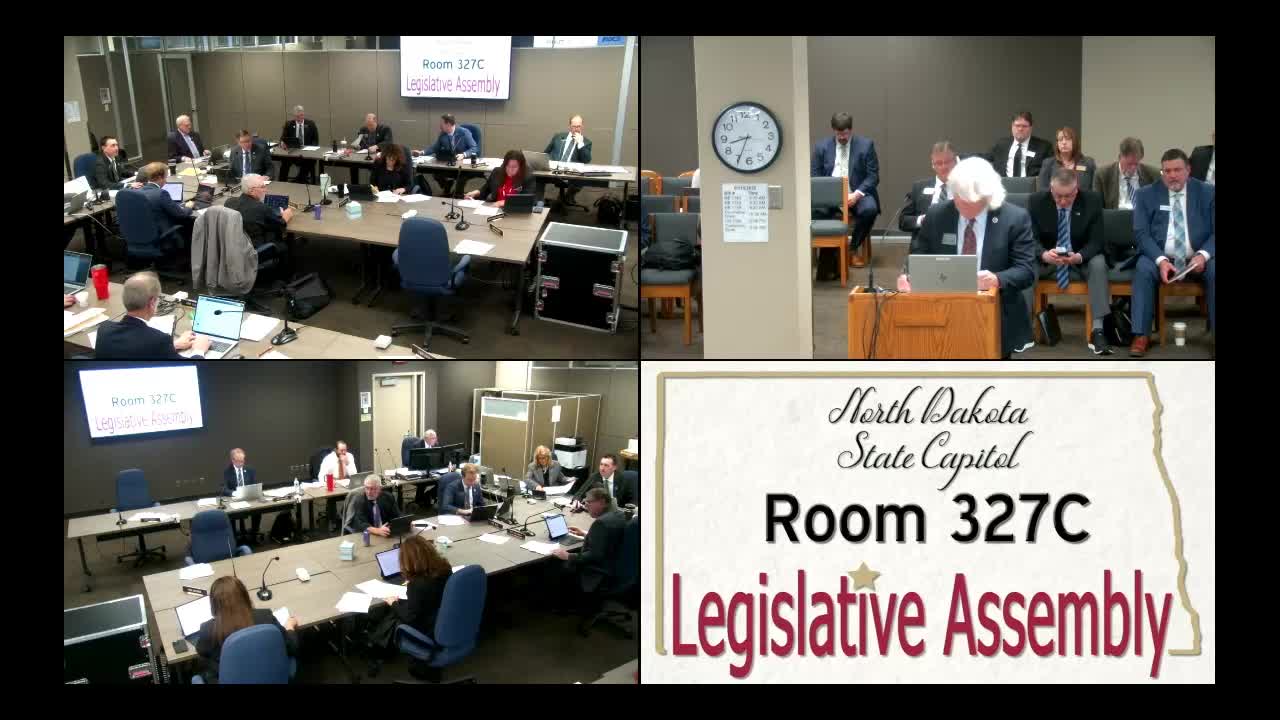Rep. Eric Murphy seeks law guaranteeing printed tickets on request
Get AI-powered insights, summaries, and transcripts
Subscribe
Summary
A bill introduced by Rep. Eric Murphy would require ticket vendors and venues to provide printed tickets on request and allow a modest USPS-based mailing fee; committee members and business groups questioned statutory limits and implementation details during a hearing.
Representative Eric Murphy introduced legislation that would require vendors and venues that issue digital-only tickets to provide a printed paper ticket on request and permit vendors to charge up to $10 for mailing via the U.S. Postal Service.
The bill’s sponsor, Representative Eric Murphy (R-Grand Forks), told the Industry, Business and Labor Committee the measure grew out of complaints from older constituents who struggled to use digital ticketing. "Just because we can force folks to change doesn't mean we should," Murphy said, adding that some season-ticket holders of 30 to 40 years had stopped attending events after their venues moved to digital-only ticketing.
Murphy said the bill would be straightforward: if a patron requests a paper ticket, the vendor must provide it; if the patron wants the ticket mailed, the vendor may charge up to $10 by USPS. He said some institutions already accommodate paper tickets without issue, citing North Dakota State University as an example and noting that UND charges season-ticket holders $40 per seat to have tickets printed.
Committee members questioned whether state law should regulate private vendors. Representative Schauer asked whether this would be government overreach; Murphy replied the bill merely ensures an option and pointed to existing venue capacity to print tickets. Representative Koppelman and others suggested alternatives such as will-call pickup or requiring digital tickets be provided in a printable format and accepted at the door.
Eric Spencer, president and CEO of the Greater North Dakota Chamber, testified in opposition in part, saying the business community was concerned about fixing specific dollar amounts and how technology will evolve. "I don't believe it is needed," Spencer said, adding the chamber preferred caution and suggested a sunset or other mechanism so the law would not constrain vendors as technology changes.
Representatives and business witnesses discussed implementation details: whether the $10 USPS cap in statute was preferable to a “reasonable” standard and whether the bill should specify it applies only to reserved or assigned-seat events. Murphy said the bill excludes general-admission/pay-at-the-door situations and focuses on digital-only reserved tickets; he also indicated he is open to clarifying language about will-call pickup and the mailing standard.
The committee heard multiple exchanges but took no formal vote during the hearing; supporters and opponents agreed some language tweaks may be necessary if the bill moves forward.
Ending
The committee closed the hearing after proponent and opponent testimony and did not take an immediate committee vote on the measure. Additional drafting work and potential amendments were discussed, including clarifying which ticket types are covered and whether mailing fees should be statutory.
